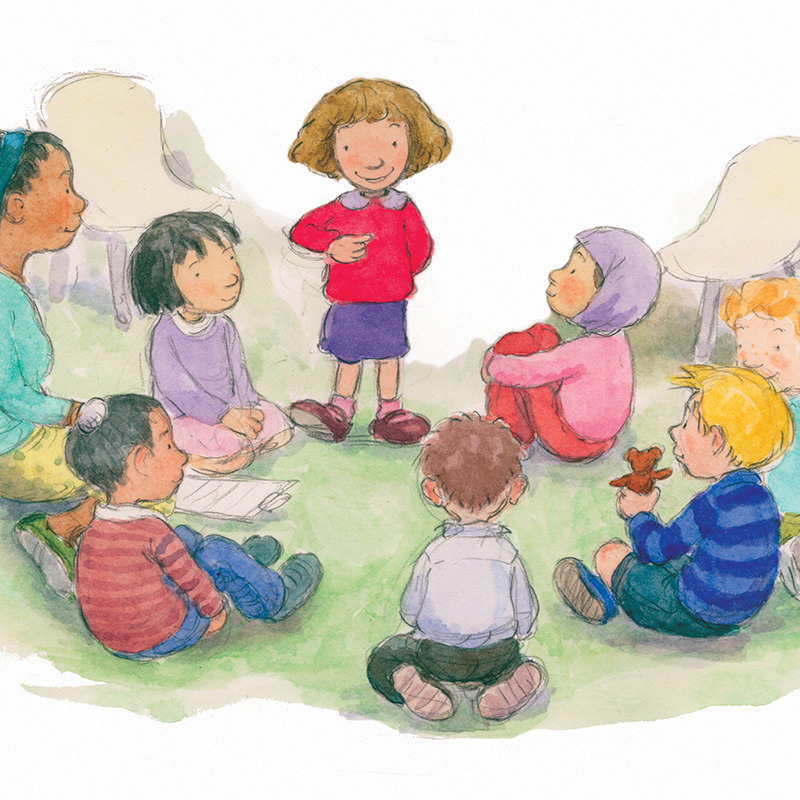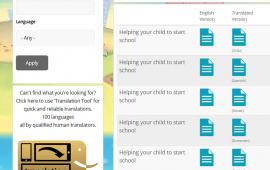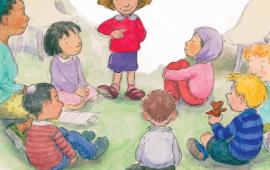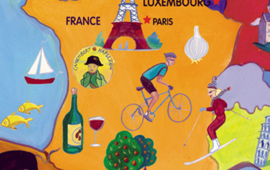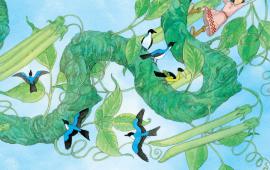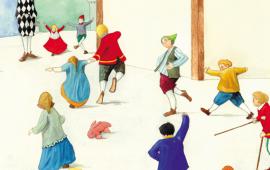Breaking The Ice On Your First Day At School
It’s a major life milestone, your first day at school. Even for those who’ve already attended nursery, the first day at school can be so daunting. There are so many things to remember, so many new people to meet, new routines to get accustomed to – and that’s just for starters.
One of the most important aspects of starting somewhere new is learning the best ways to get on with all the new people you meet. And you’ve probably heard the expression “breaking the ice” when it comes to meeting people for the first time; but what does it mean, and what are some useful methods?
As with so many of our everyday expressions, “breaking the ice” has its origins (we think) in literature, in this case, a book from the 16th century describing the lives of Plutarch and other classical philosophers. Now, we often use it when people meet for the first time, at a party or a business setting. There’s even a noun, “icebreaker”, and there are some great ideas out there to help with this. I still remember with fondness one multi-lingual setting where we all had to find our work group by making the noise of the animal on the little card we’d been given. I never knew until then that Spanish frogs, for instance, say “croac” and not “ribbit” as they do in English. Yes, we were all adults at the time, but who doesn’t love a chance to say “ribbit” now and then in the interests of communication and teamwork?
If you don’t much fancy imitating animals this early on, a smile goes a long way, and luckily, smiles are pretty universal, whatever language you speak. Introducing the new vocabulary that children are going to need is another sensible approach: it’s unlikely that many new pupils, for instance, will know the word “cloakroom” or even “desk”, and many children may not realise the difference between pens, pencils, and crayons, as a start. If someone’s first language isn’t English, helping them make the connection between words they already know and words that are completely new can also help ease them in to the exciting but bewildering new world they’ve just joined.
Encouraging children to understand how they can ask for help, and how to get the attention of the teacher or TA, is another way to help them with this milestone. Very young children might not realise it’s not appropriate in most cultures, for instance, to tug on clothing to get your attention. It’s likely that terms like “hands up!” will be new, and children also need to know what to call you. In some settings, first names might be very appropriate; in other cultures, calling teachers “Miss Smith” or “Mr Khan” is the done thing, and in some places, a mix might be used; one friend was called “Miss Margaret” all the time she was teaching outside the UK. And I’m sure we’re all familiar with the plaintive cries of “Miss! Sir!” or even “Teach!” when someone needs a hand.
Have a look at some of our resources to help children with those first crucial days at a new school; see the situation through the eyes of Tom and Sofia, for instance, one of our many bilingual books that can help ease the transition. Or, since making friends from different backgrounds is one of the most important life lessons we learn at school, why not see how Mungo’s doing? We’re pretty sure he’d love to hear from you!
One of the most important aspects of starting somewhere new is learning the best ways to get on with all the new people you meet. And you’ve probably heard the expression “breaking the ice” when it comes to meeting people for the first time; but what does it mean, and what are some useful methods?
As with so many of our everyday expressions, “breaking the ice” has its origins (we think) in literature, in this case, a book from the 16th century describing the lives of Plutarch and other classical philosophers. Now, we often use it when people meet for the first time, at a party or a business setting. There’s even a noun, “icebreaker”, and there are some great ideas out there to help with this. I still remember with fondness one multi-lingual setting where we all had to find our work group by making the noise of the animal on the little card we’d been given. I never knew until then that Spanish frogs, for instance, say “croac” and not “ribbit” as they do in English. Yes, we were all adults at the time, but who doesn’t love a chance to say “ribbit” now and then in the interests of communication and teamwork?
If you don’t much fancy imitating animals this early on, a smile goes a long way, and luckily, smiles are pretty universal, whatever language you speak. Introducing the new vocabulary that children are going to need is another sensible approach: it’s unlikely that many new pupils, for instance, will know the word “cloakroom” or even “desk”, and many children may not realise the difference between pens, pencils, and crayons, as a start. If someone’s first language isn’t English, helping them make the connection between words they already know and words that are completely new can also help ease them in to the exciting but bewildering new world they’ve just joined.
Encouraging children to understand how they can ask for help, and how to get the attention of the teacher or TA, is another way to help them with this milestone. Very young children might not realise it’s not appropriate in most cultures, for instance, to tug on clothing to get your attention. It’s likely that terms like “hands up!” will be new, and children also need to know what to call you. In some settings, first names might be very appropriate; in other cultures, calling teachers “Miss Smith” or “Mr Khan” is the done thing, and in some places, a mix might be used; one friend was called “Miss Margaret” all the time she was teaching outside the UK. And I’m sure we’re all familiar with the plaintive cries of “Miss! Sir!” or even “Teach!” when someone needs a hand.
Have a look at some of our resources to help children with those first crucial days at a new school; see the situation through the eyes of Tom and Sofia, for instance, one of our many bilingual books that can help ease the transition. Or, since making friends from different backgrounds is one of the most important life lessons we learn at school, why not see how Mungo’s doing? We’re pretty sure he’d love to hear from you!
Related Posts
-
Ramadan Begins!
-
A new kind of PENfriend – Mantra Lingua’s new digital device to help make sense of the world all around you
-
Do You Speak This Language? The Mantra Lingua L1 Key Terms & Letters Library
-
Breaking The Ice On Your First Day At School
-
Not Everyone Celebrates New Year on 1 January....
-
Simple Ways to Boost Your Bilingual Child’s Language Skills
-
Our Lady of Paris: the cathedral of Notre Dame endures
-
Poetic licence in the library – bilingual poetry in 64 languages, Made in Manchester
-
Will The Interactive Elaborative Storytelling (IES) Method Work For You?
-
Out Of This World: Bedtime Stories From The International Space Station?

